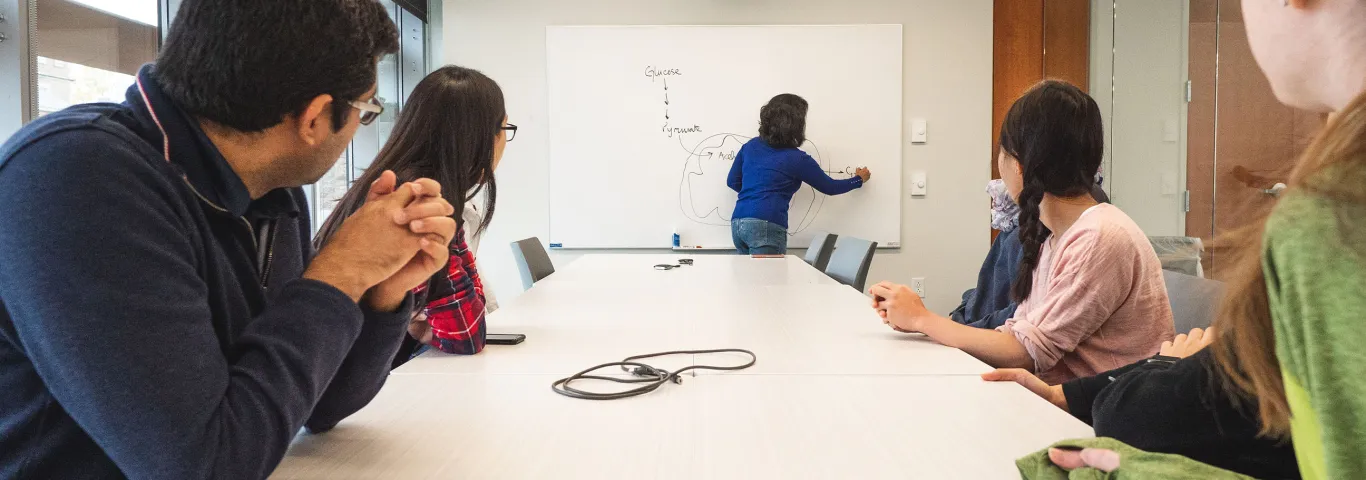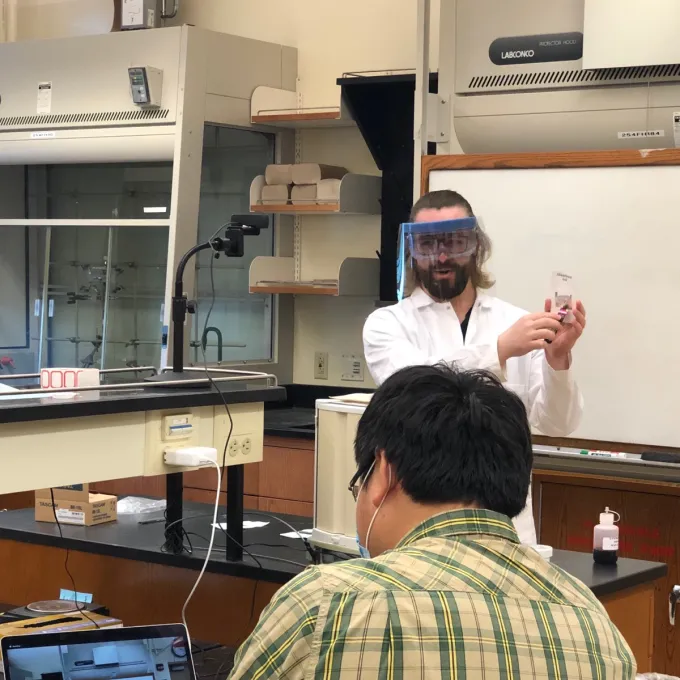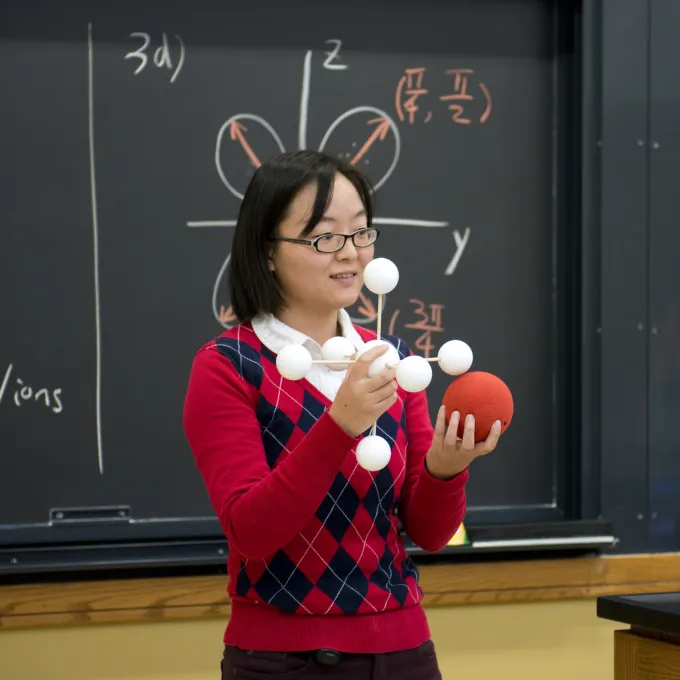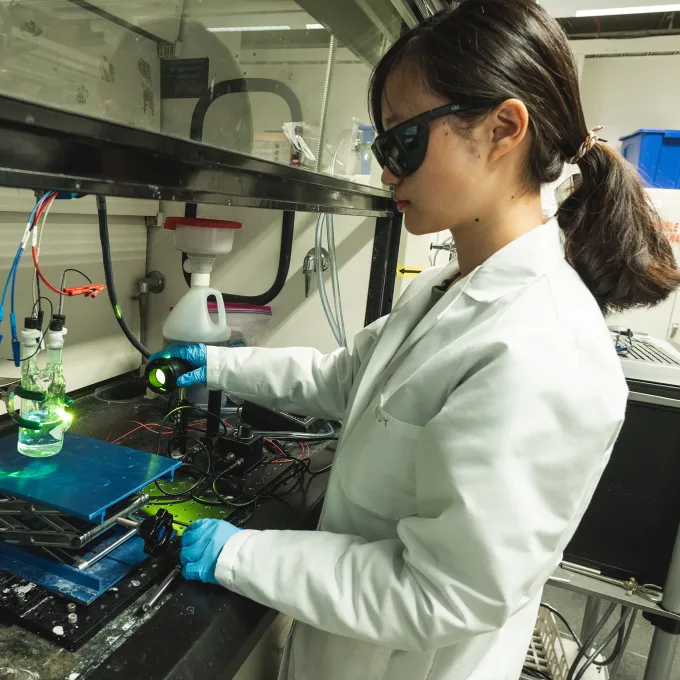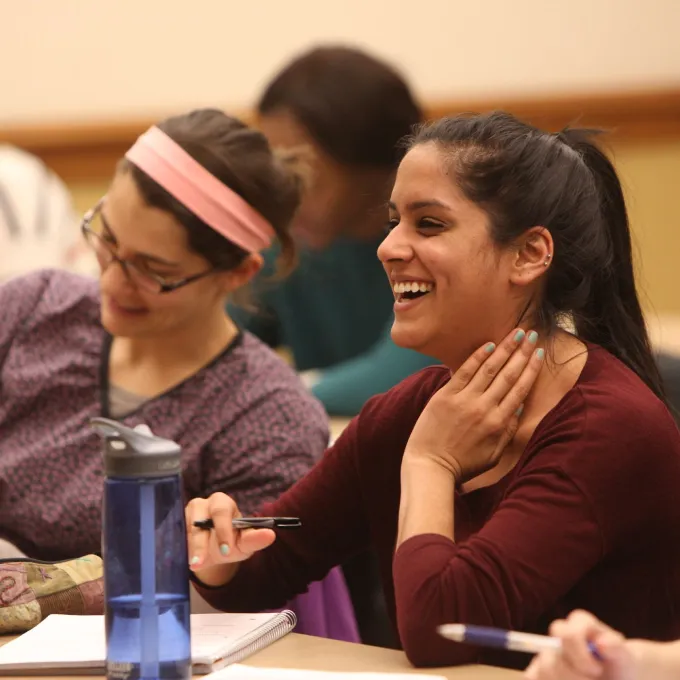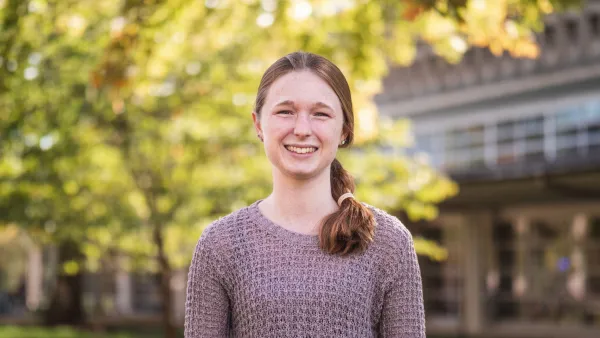What is PLTL?
PLTL is an abbreviation for Peer-led Team Learning. It is an optional program offered to all General Chemistry students (students are eligible to enroll only if they have completed the Diagnostic Exam). Students who choose to enroll are placed into a study group that meets for two hours on Saturday or Sunday throughout the semester. Group members work through a problem set designed to require a collaborative effort, to help develop critical thinking skills and to hone advanced problem-solving abilities. These groups are facilitated by a trained undergraduate peer leader, who guides and encourages the group through the learning process.
What do students say about their Chemistry PLTL experience?
- “I was a little worried about doing PLTL since I'm not a big fan of working in groups, but I can definitely say that without PLTL, my Gen Chem grade would be significantly lower. Not only do the extra problems help me with problem solving, but learning how to apply concepts from lecture on my own (with a support group) plays a big role when I take my exams. I'm very grateful that WashU has this program. It really makes fellow freshmen comfortable and eager to learn the material.”
- “Chemistry PLTL helped me most through the challenging problems provided in the packet. The most helpful part was seeing how someone else could approach a problem differently to arrive at the same answer.”
- “[PLTL] helped me most in ensuring that I got more exposure to chemistry problems so that my problem solving skills could increase and therefore I'd be able to solve a larger variety of problems.”
- “Chemistry PLTL has taught me how to work in a group. It has given me more confidence in my abilities showing me that when I have the resources and the motivation, I will succeed.”
Why does it work for so many different students?
As faculty members of an elite institution, it is our collective goal to develop independent, creative, analytical, and critical thinkers. With these goals in mind, the General Chemistry instructors have designed our sequence in such as a way as to place emphasis on critical-thinking skills and problem-solving methods.
This program will assist you not only in mastering the course material, but in learning the value of group discussion, team work, and peer review in furthering one’s own knowledge. You will learn different methods of group work, critical-thinking skills, and study strategies. No answer keys are provided; you must decide as a group whether answers are reasonable and correct. This strategy enables you to be confident when applying your knowledge and understanding to new problems and concepts. This confidence is essential for performing well on quizzes and exams, as well as in any career you might choose to pursue. The PLTL program provides a supportive community of scholars and emphasizes taking responsibility for your own learning.
How do I sign up?
The online application process will be discussed during the first lecture each semester of the Chemistry 111/112 sequence. It will open at 5 pm the Monday classes begin. All first-year students who take the Diagnostic Exam, and sign up for PLTL by the announced deadline will be guaranteed placement in a Chemistry PLTL study group. Upper-level students are not required to take the Diagnostic exam in order to participate in PLTL, but they must sign up for PLTL by the announced deadline.
If you have questions about the PLTL program, please contact Megan Daschbach via e-mail (daschbach@wustl.edu).
